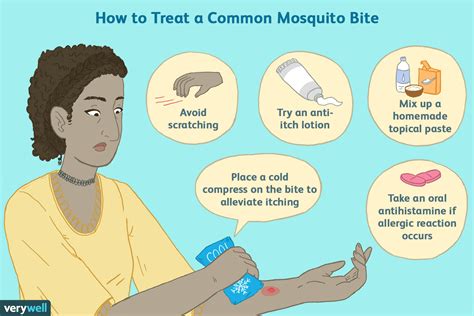How to Heal Mosquito Bites: Home Remedies and When to See a Doctor
Mosquito bites. Those itchy, irritating little bumps that seem to appear overnight. While generally harmless, they can be incredibly annoying and sometimes even lead to more serious complications. This comprehensive guide will walk you through effective home remedies to alleviate the discomfort of mosquito bites and advise you on when professional medical attention is necessary.
Understanding Mosquito Bites
Before diving into treatments, it's helpful to understand what causes the itch and swelling. When a mosquito bites, it injects saliva containing anticoagulants to prevent blood clotting. This saliva is what triggers your body's immune response, leading to inflammation, redness, and the characteristic itch.
Why Do Mosquito Bites Itch?
The itching sensation is a result of histamine release, a chemical your body produces as part of the inflammatory response. This histamine causes blood vessels to dilate, leading to swelling and the intense urge to scratch. Resist the urge! Scratching can break the skin, increasing the risk of infection.
Home Remedies for Mosquito Bite Relief
Fortunately, many effective home remedies can provide relief from mosquito bites. These methods work by reducing inflammation, soothing the skin, and relieving the itch.
1. Cold Compress: The Classic Solution
Applying a cold compress is one of the simplest and most effective ways to reduce swelling and itching. A cold, damp cloth or ice pack (wrapped in a thin cloth to avoid direct skin contact) applied for 10-15 minutes can offer significant relief.
2. Aloe Vera: Nature's Soothing Agent
Aloe vera gel, known for its soothing and anti-inflammatory properties, is a great natural remedy for mosquito bites. Apply a small amount directly to the bite several times a day.
3. Baking Soda Paste: A Simple Anti-Itch Remedy
Mix a small amount of baking soda with a little water to create a paste. Apply this paste to the bite to neutralize the acid in mosquito saliva and reduce itching. Leave it on for about 15 minutes before rinsing.
4. Apple Cider Vinegar: Soothes and Reduces Swelling
Apple cider vinegar has natural antiseptic and anti-inflammatory properties. Dilute it with water (equal parts) and dab it onto the bite using a cotton ball.
5. Tea Bags: Reduce Swelling and Itch
A cool, damp tea bag (especially black or green tea) can offer soothing relief. The tannins in tea have anti-inflammatory properties.
When to See a Doctor
While most mosquito bites heal on their own within a week, seek medical attention if you experience:
- Severe swelling or pain: This could indicate an allergic reaction.
- Signs of infection: Increased pain, redness, pus, or warmth around the bite.
- Fever or chills: This could signify a more serious infection.
- Large, widespread rash: This might be a sign of a severe allergic reaction.
- Difficulty breathing or swallowing: This is a medical emergency and requires immediate attention.
Preventing Mosquito Bites
Prevention is always better than cure. Here are some tips to reduce your risk of mosquito bites:
- Use insect repellent: Choose a repellent containing DEET, picaridin, IR3535, or oil of lemon eucalyptus.
- Wear long sleeves and pants: This provides a physical barrier against mosquito bites, especially during peak mosquito activity hours (dawn and dusk).
- Eliminate standing water: Mosquitoes breed in stagnant water, so remove any sources around your home.
- Use mosquito netting: Protect yourself from bites while sleeping outdoors or in areas with high mosquito populations.
By following these tips and remedies, you can effectively manage mosquito bites and minimize their discomfort. Remember, prevention is key, and knowing when to seek professional help can ensure your well-being.
